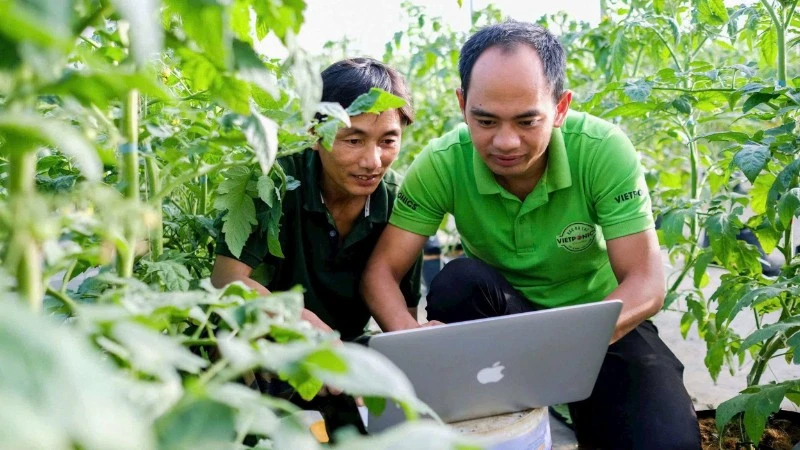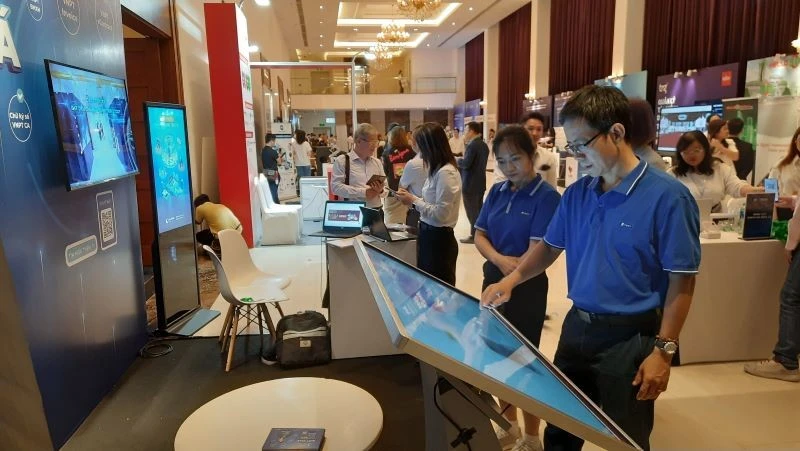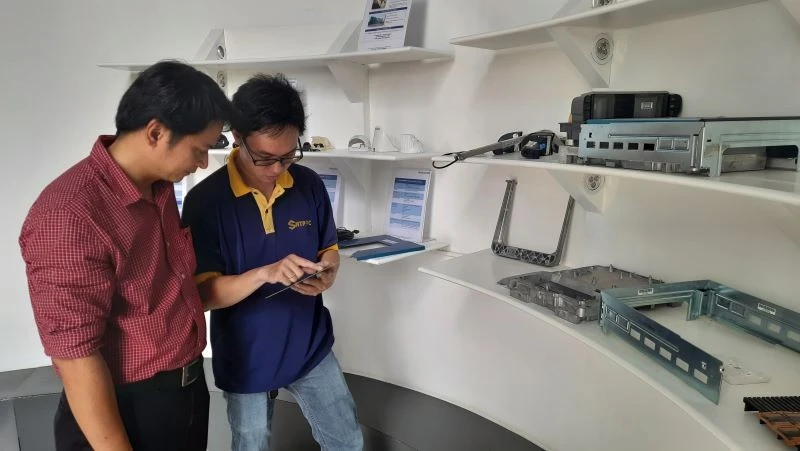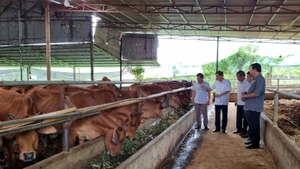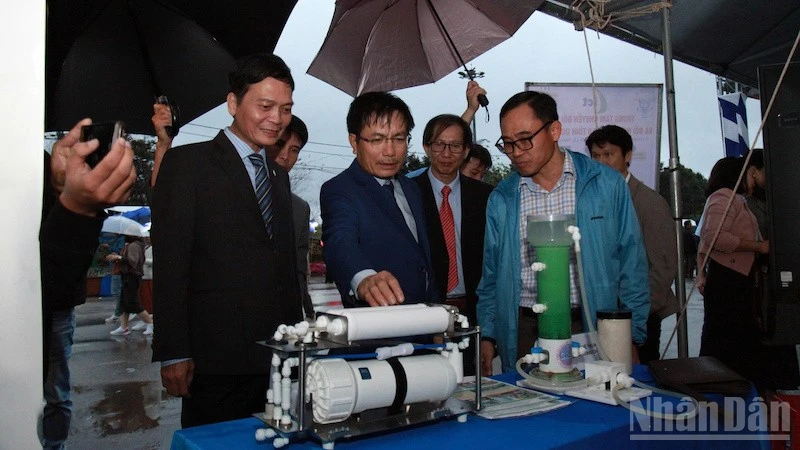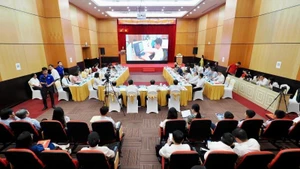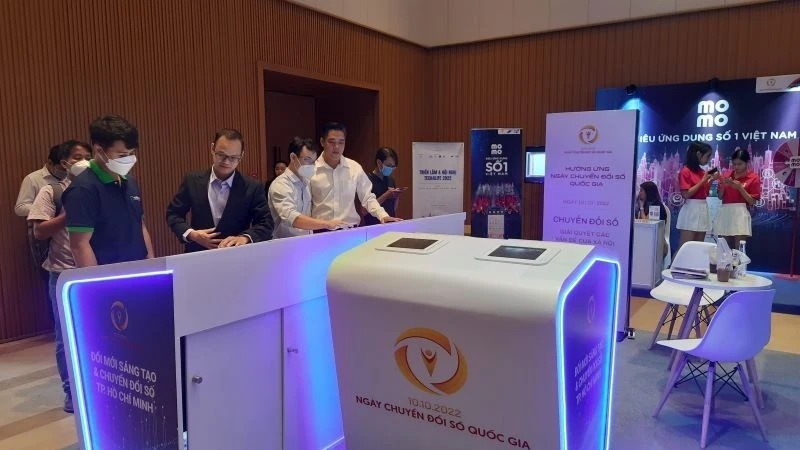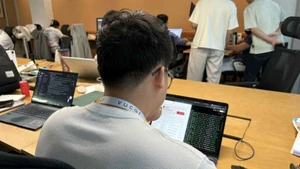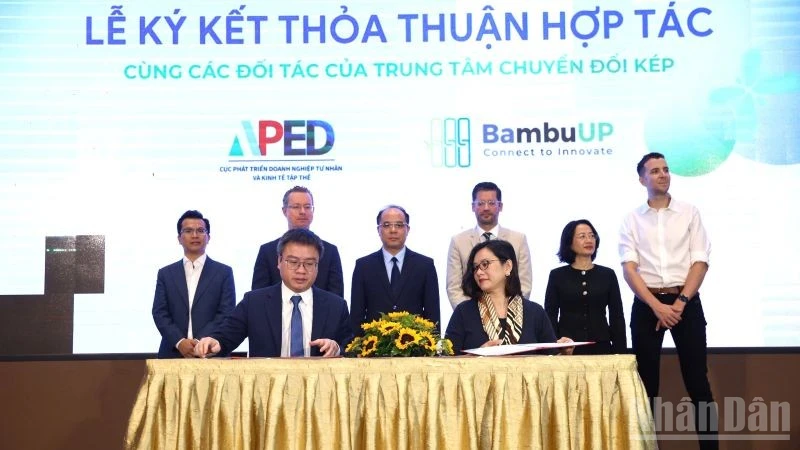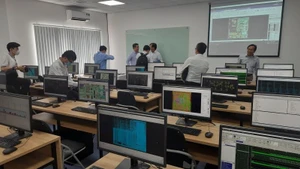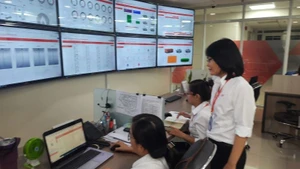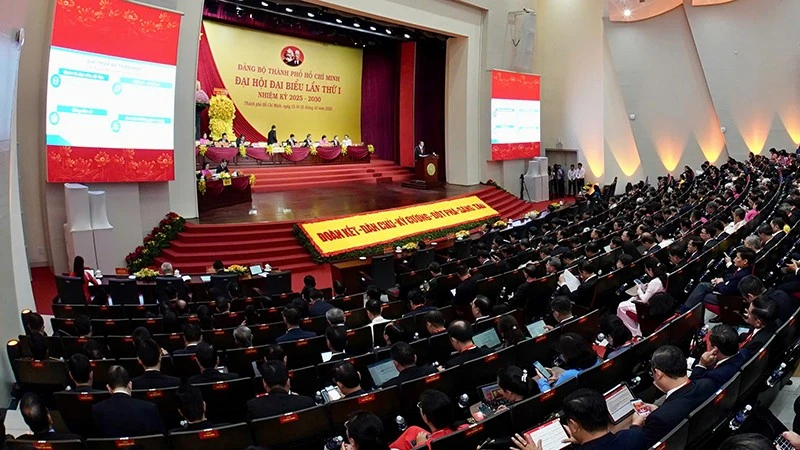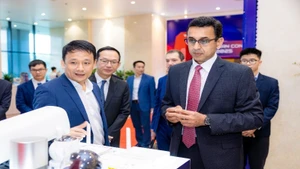“Footprint-free” fields and “humanless” farms operated by sensor networks and automated irrigation systems are increasingly common. Online stalls for farm produce on e-commerce platforms and farmers hosting lively livestreams on social media have transformed traditional production models. Farmers have become both the centre and driving force of rural economic growth, embodying the new image of digital agriculture.
The breakthrough of new digital technologies such as the Internet of Things (IoT), Artificial Intelligence (AI), blockchain, big data, and autonomous robotics is reshaping global production — and is increasingly within reach of Vietnamese farmers.
Science and technology transforming production
Early in the morning, as the mist lifted over Da Lat, we visited the farm of Nguyen Duc Huy in Lam Vien Ward, Da Lat City, Lam Dong Province. Sitting at a café, he glanced at his smartphone and smiled: “I don’t really need to check on the crops today — all systems are running smoothly — but I’d like to show you how it works.”
Leading us to his nearly one-hectare farm producing various vegetables and fruits, he explained: “Everything is automated — fertilising, watering, and crop care. When the system alerts me, I apply the right biological treatments. The farm runs with just six full-time workers who operate the VietPorics Control System, now integrated with an AI chatbot for crop management.”
Over more than a decade, the data within the VietPorics system that Huy developed has grown significantly. With its AI integration, farmers can manage their farms remotely; “you can take care of your crops while sitting in a café,” he joked.
His story began in 2013. After earning a master’s degree in plant biology from the University of Science, Ho Chi Minh City, Huy spent a year working in the public sector before returning to Da Lat, drawn by the potential of its highland agriculture. After several failed attempts due to unpredictable weather and production inefficiencies, he decided to build his own software — a system connecting mobile devices and computers to collect real-time ecological data, analyse conditions, predict pest outbreaks, and recommend preventive measures.
Also in the Central Highlands, Cao Thi Luu Bieu from Ea Kao Ward, Dak Lak Province, maintains a one-hectare coffee farm equipped with soil and environmental sensors that monitor pH, nitrogen, phosphorus, potassium, temperature, humidity, and electrical conductivity (EC). Using the Enfarm system, she can precisely manage fertiliser and irrigation levels, cutting input costs while boosting productivity and crop quality. “The system updates data constantly, allowing early detection of risks and helping us make timely, accurate decisions,” she said enthusiastically.
While Huy and Bieu use smartphones as “health monitors” for their soil, members of the Toan Thuong Agricultural Cooperative in Lang Son use them as “digital bridges” — livestreaming to promote their products and selling directly through social media and e-commerce platforms. During these sessions, one person tells the farm’s story, another responds to comments, and others process and dispatch orders — showing how digital transformation has become a genuine wealth-creating tool for farmers.
According to Vuong Thi Thuong, Director of the cooperative, every member is now a skilled online seller. In 2024, the cooperative produced 10 tonnes of dried persimmons — equivalent to 50–60 tonnes of fresh fruit — earning revenue of VND 5 billion.
“Scientists of the rice fields”
As a farmer attached to his fields, Mr. Nguyen Anh Dung (Lai Vung Commune, Dong Thap Province) is often concerned about the "inconsistency" in rice production, living through the recurring cycle of “good harvest, low price; high price, poor harvest.” After years of experimentation — marked by setbacks, financial loss, and even debt — he succeeded in 2015 in developing the Ngoc Do Huong Dua rice variety, followed by Huyen Ngoc Dinh An and Nhu Hong.
“I based my work on scientific literature and exchanges with universities and research institutes, following strict selection and testing procedures,” he explained. “With a growth cycle of 95–100 days, the Ngoc Do Huong Dua variety is resistant to brown planthopper and rice blast, requires less fertiliser, and still yields well. The rice is nutritious and classified as a high-value export product. Moreover, as a unique variety, it is less affected by market fluctuations, ensuring stable income for growers. Our seed fields have even become open-air laboratories for students from universities across the Mekong Delta to study and practise.”
While Dung focuses on hybridisation, Nguyen Ngoc Huan from Thanh An Commune, Can Tho City, is one of the few farmers capable of producing super-fundamental rice seeds, the purest generation used for developing commercial strains.
“Growing super-fundamenta seeds isn’t too difficult, but it demands strict discipline and precision,” he said. “Our Khiet Tam Cooperative works under contract with the Mekong Delta Rice Research Institute, following rigorous technical standards — from soil selection and isolation distances to care, harvesting, and storage — to ensure genetic purity. These seeds serve as the foundation for creating new, high-yield commercial varieties.”
